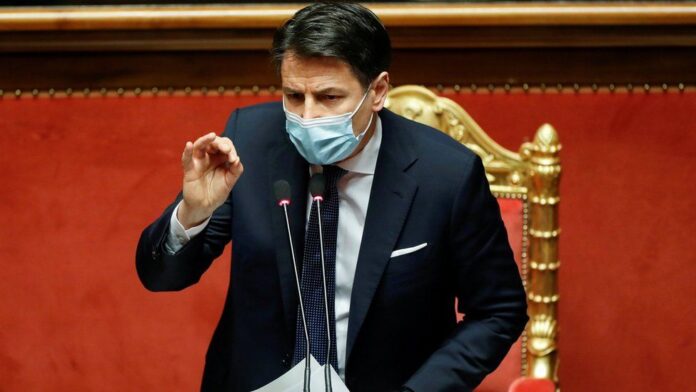Italian Prime Minister Giuseppe Conte has resigned – and it is not clear if he will be able to form and lead a new coalition government.
He has been criticised for his handling of the coronavirus crisis, in which more than 85,000 Italians have died.
Mr Conte met President Sergio Mattarella, who may ask him to form a stronger government. Last week he lost his Senate majority.
But someone else could become Italy’s PM, or a snap election could be called.
The law professor, who has headed coalition governments since 2018, tendered his resignation to the president. And now Mr Conte is discussing the political crisis with Senate president Elisabetta Casellati.
President Mattarella is expected to spend two days in talks with party leaders, as it is up to the president to decide the next move.
How did this come about?
The centrist coalition government was plunged into crisis two weeks ago when former PM Matteo Renzi pulled his small, liberal Italia Viva party out of it. He said he would only return if Mr Conte accepted a list of demands.
Mr Conte survived a vote of confidence in the lower house, the Chamber of Deputies, last week. He then won a Senate vote, but without an absolute majority.
The lack of a majority would restrict government business – hence the political shake-up.
Mr Renzi’s main objection was to Mr Conte’s plans for spending €209bn (£186bn; $254bn) of EU recovery funds – part of a €750bn EU rescue for the Covid crisis.
Mr Renzi says EU funds should be invested in promising sectors like digital and green technologies, and wants MPs, rather than technocrats, to decide on the allocations. He governed Italy in 2014-2016, but currently his Italia Viva party is polling below 3%.
Source: BBC


